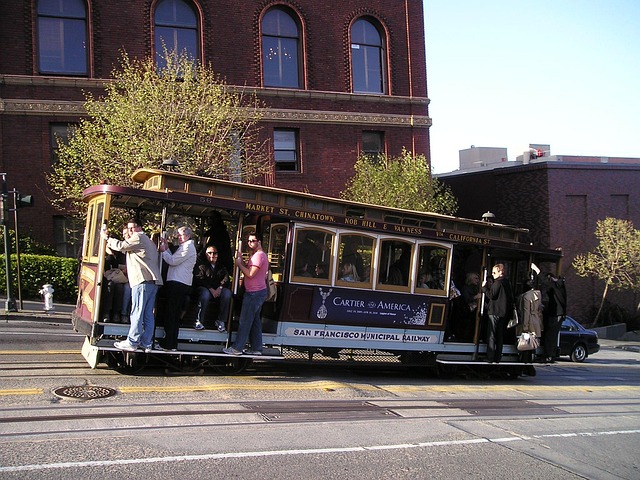Elderly sexual assault victims in San Diego need specialized legal help due to cognitive, mobility, and sensory impairments. Elderly sexual assault lawyers must adapt communication strategies using clear language, patient listening, and visual aids to build trust and encourage open dialogue in a non-judgmental environment. Prioritizing trust and understanding unique needs are crucial for positive outcomes in representing vulnerable elderly clients, especially in complex cases like San Diego sexual assault claims. Consider an elderly sexual assault lawyer San Diego for tailored support.
In San Diego, effective communication between attorneys and elderly clients is paramount, especially in complex legal matters. This article delves into the unique needs of seniors in legal proceedings, emphasizing the importance of building trust and rapport. We explore essential skills for attorneys interacting with elders, providing practical communication techniques to ensure client comprehension. Additionally, we address common barriers and offer real-life case studies highlighting successful strategies. For those specializing in elderly sexual assault cases, understanding these dynamics is crucial to delivering compassionate, competent legal representation.
Understanding the Unique Needs of Elderly Clients in Legal Proceedings

Elderly clients often have unique needs and challenges when involved in legal proceedings, especially in sensitive cases like elderly sexual assault. As an elderly individual, cognitive abilities, mobility issues, and potential sensory impairments can impact their ability to communicate effectively during legal interactions. San Diego’s elderly sexual assault lawyers must be adept at tailoring their communication strategies to ensure these clients feel heard and fully understand the process.
This may involve clear and simplified language, patient listening, and using visual aids or technology to bridge any comprehension gaps. Given the often vulnerable state of elderly victims, creating a safe, non-judgmental environment is paramount. Attorneys should be mindful of their tone, body language, and the overall atmosphere in the courtroom or consultation room to foster trust and encourage open communication from San Diego’s elderly clients.
Building Trust and Rapport: Essential Skills for Attorneys Interacting with Seniors

Building trust and rapport is a critical skill for attorneys representing elderly clients, especially in sensitive cases like elderly sexual assault cases in San Diego. Understanding the unique needs and concerns of seniors requires attuning to their emotional state and ensuring clear, non-judgmental communication. Many elderly individuals may feel vulnerable, fearful, or confused when facing legal issues, particularly if they have cognitive impairments or limited mobility.
Attorneys can foster trust by actively listening, using simple, plain language, and being patient. Showing empathy, respect, and deference to the client’s autonomy and decisions helps establish a supportive environment. This is especially vital when discussing sensitive topics like sexual assault, ensuring the elderly client feels safe and comfortable sharing their experiences. A genuine connection built on trust can significantly impact the client’s willingness to cooperate and share relevant information, ultimately strengthening the legal representation.
Effective Communication Techniques to Ensure Client Comprehension

Effective communication between attorneys and elderly clients, especially in cases involving sensitive matters like elderly sexual assault in San Diego, requires tailored strategies to ensure comprehension and build trust. Given the cognitive and physical changes that can occur with aging, straightforward and concise language is essential. Attorneys should avoid legal jargon and complex terms, opting for simple explanations of case progress, rights, and options. This approach helps elderly clients feel more at ease and confident in their decision-making abilities.
Active listening is another powerful tool. Paying close attention to the client’s concerns, questions, and emotions demonstrates respect and can foster a sense of security. Attorneys should encourage open dialogue, allowing clients to share their experiences and perspectives freely. This two-way communication stream ensures that any misunderstandings are promptly addressed, promoting better client satisfaction and outcomes, particularly in complex legal matters that might impact an elderly individual’s life and well-being.
Addressing Common Barriers to Communication in Elderly Cases

Effective communication between attorneys and elderly clients is paramount, especially in complex cases like elderly sexual assault claims in San Diego. However, several barriers often impede this process when dealing with an aging population. One significant challenge is cognitive decline, which can affect memory, concentration, and language comprehension. Attorneys must adopt clear and simple communication strategies, ensuring they allow ample time for clients to process information and provide responses.
Additionally, cultural differences and language barriers play a role, particularly in diverse San Diego communities. Elderly clients from different backgrounds may have unique communication preferences or face challenges due to limited English proficiency. An elderly sexual assault lawyer in San Diego should be culturally sensitive, utilizing interpreters or multilingual resources when necessary to bridge the gap and ensure every client receives accessible legal representation.
Case Studies: Successful Communication Strategies in Real-Life Scenarios

In real-life scenarios, effective communication strategies between attorneys and elderly clients have proven to be instrumental in achieving positive outcomes. For instance, an elderly sexual assault lawyer San Diego might employ a personalized approach, adapting their language and explanation of legal processes to suit the client’s cognitive abilities. This involves using simple, clear terms and providing visual aids or written summaries to ensure comprehension.
Another successful strategy could be establishing a supportive environment where the elderly client feels comfortable expressing concerns and asking questions. This may include allowing extra time for consultations, offering multiple communication channels (phone, email, in-person visits), and demonstrating empathy throughout the interaction. Such tactics not only facilitate better understanding but also build trust, which is essential for successful collaboration between attorneys and their elderly clients.






